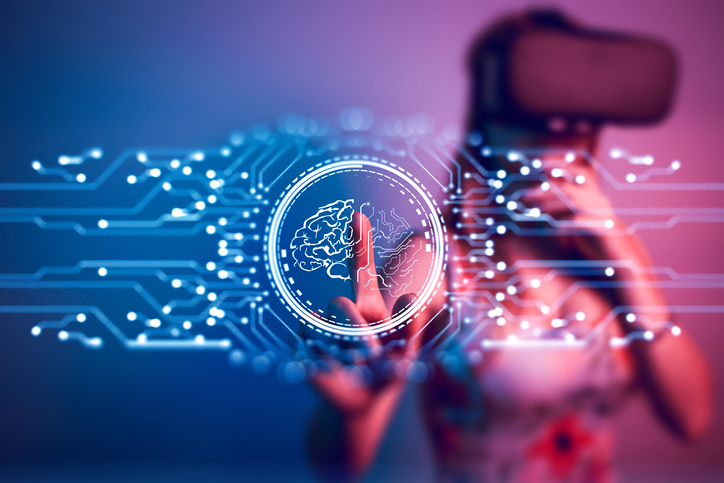Here Are the Disruptive Technologies That Will Reshape Your Business

We hear a lot about “disruptive technology,” but what does that really mean? It is one thing to put together a trend piece or identify the next big thing. Understanding it and planning for the disruption is another challenge altogether.
How can I prepare? Where should I invest? How will this impact my organization?
Those questions are some of the obvious and important ones to start with, certainly. But comprehending disruption in its entirety takes looking at its source, scale, and multiple levels of impact. More often than not, something truly disruptive will create shifts for individuals, departments, organizations, sectors – even societies and geopolitical systems. The scale of change can be monumental. Understanding these shifts is critical for organizations seeking to establish resilience and a leadership position in changing markets.
Through the course of my work with Toffler Associates, I field these kinds of questions regularly. Change is happening all around us, impacting the way we learn, work, relax, and live. Our clients strive to understand what it means for the future.
At the most recent Future Shock Forum, we explored some of the challenges caused by desynchronization and an increasing pace of change. We also talked about the barriers that exist between the ‘tech’ people and the ‘business’ people in many organizations, and how challenges with lexicon deepen these inherent barriers. At Toffler Associates, we try to replace those barriers with a human-centric approach that taps into the insights and responsibilities held by stakeholders across the whole organization.
I’ve spent much of the past few years scanning the horizon and helping organizations understand and plan for disruption. The start of a new year seems like a good time to share the technologies that excite me the most for the future, along with some thoughts about how organizations like yours can prepare to use them to their greatest advantage.
Artificial Intelligence (AI)
Whether her name is Siri or Alexa, chances are, you already have an AI ‘friend’ recommending your next movie, song, purchase, or best route for your daily commute. This technology is also helping to direct robots in warehouses and manufacturing facilities, augmenting your Internet searches, and looking for fraud across financial institutions. There aren’t many jobs or issues that won’t be impacted in some way by AI in the coming decade.
Why it’s impactful:
AI will allow for hyper-scaled pattern recognition (and learning) from sifting through, analyzing, and synthesizing vast arrays of data (think customer, competitor, community, and workforce). The resulting data will generate unique insights or even replace predominantly human tasks such as providing legal advice, process optimization, customer service, marketing strategies, investment, pricing, product development, community development, and optimal crop development.
Quantum Computing
The debates about the viability of quantum computers and the timelines for when the technology becomes ‘real’ are not new. What’s changed is the increase in investment and significant technical progress over the past couple of years. When quantum is achieved, it will change the world – and it likely will happen sooner than we think.
Why it’s impactful:
As non-quantum resistant encryption becomes obsolete, we will see massive security impacts across nearly every industry. Areas such as communication, material science, and pharmaceuticals also will experience significant advances, ranging from the ability to discover new particles and cures for diseases to solving problems previously assumed to be unsolvable. No doubt quantum has the potential to yield tremendous insight.
Genetic Engineering
Contentious and associated with the creation of designer babies or ‘super-humans,’ genetic engineering can address several challenges impacting communities around the globe including endangered species, global hunger, and chronic illnesses.
Why it’s impactful:
Recent genetic engineering efforts show great promise in increasing global food stocks. Ethical and legal issues notwithstanding, this technology also has real potential to help treat (and potentially eradicate) illnesses such as cancers, viruses, and genetic disorders.
Autonomy
The number of autonomous cars, robots, and drones will continue to extend across a growing number of industries including transportation, logistics, security, and exploration (e.g., sea and space). The automation already is impacting how things are done and who does them – and when combined with AI, the possibilities are limitless.
Why it’s impactful:
Autonomy reduces the need for human involvement in tasks ranging from the mundane to the mission critical. It also decreases the risks of human error and fatigue, and improves efficiency by eliminating the need for crew rest or shifts.
Brain-Computer Interface
For some time already, the convergence of humans and machines has blurred the line between science fiction and reality. This merging will continue to challenge our notions of identity and humanity, and allow for previously unfathomable learning about the human body.
Why it’s impactful:
The data and insights derived from this interface have the potential to greatly advance society across multiple areas (health, education, and human performance). Advantages will continue to be met with challenges from legal, ethical, and security dilemmas that we must solve. What happens when you can hack a person?
Additive Manufacturing
Additive manufacturing allows individuals and organizations to fabricate and build things without needing traditional industrial machinery or a factory environment. The ability diffuses the power from industrial organizations to knowledge organizations.
Why it’s impactful:
Additive manufacturing is unlikely to replace factories and production lines across the board. Nonetheless, it enables companies, individuals, and communities to build precise prototypes, fabricate complex and customized items, and test new products outside the confines of factory and industrial know-how.
Augmented and Virtual Reality
Ready Player One aside, augmented and virtual reality puts learning, entertainment, and planning into a fully immersed environment that is available when and where it benefits the user most.
Why it’s impactful:
Though nascent, AR and VR already are transforming how we train, experience art and entertainment, conduct maintenance, create and design products, learn, and explore new locations from anywhere.
Through my conversations with hundreds of C-suite executives, technologists, investors, and engineers, these technologies generally are causing a high level of anxiety. That discomfort is normal. No matter how incredible and potentially positive the innovations may be, these changes are a lot to process – mainly because they promise to impact the ways we work and live. Given the pace of work today, many of us feel forced to prioritize off-the-cuff decision-making with response to the immediate, rather than feeling able to take the space to think through implications and ask deeper questions before we act.
With that in mind, start to consider change with a simple list of questions. Which technology(ies) are sure to impact your company? Which will give your competitor(s) the edge they seek? Which one(s) upends your industry? Where do you start?
These are all reasonable questions. With your considerations in mind, begin to consider how you’re preparing for tomorrow, today. Here’s how we’re helping organizations determine those answers and action plans:
- Flash Futures™: Facilitated, scenario-driven exercises for a team to expand thinking, uncover and target bias, and consider alternate strategies and concepts for their business, markets, and customers.
- Full Spectrum Exploration®: Award-winning methodology for helping teams to combat bias, uncover new insights, and solve ‘wicked’ problems for their organization. This exercise is designed to challenge assumptions about the future and promote cross-functional strategic planning and collaboration.
- Alternate Futures®: Tailored assessments into the causes of change across targeted markets, development of multiple scenarios and exploration of the impacts on customers, competitors, and opportunities for organizations to take action today.
2018 brought tremendous innovation and change. Perhaps your organization has been able to process the disruptions and progress to move into 2019 with a good sense of what might come next and how you will use the changes to reach the next level in your organization. Whatever your situation at this turn of the year, the time is right to engage these kinds of questions, conversations, and exercises. We are glad to help.
- Categories
- Workforce of the Future

 About the Authors
About the Authors